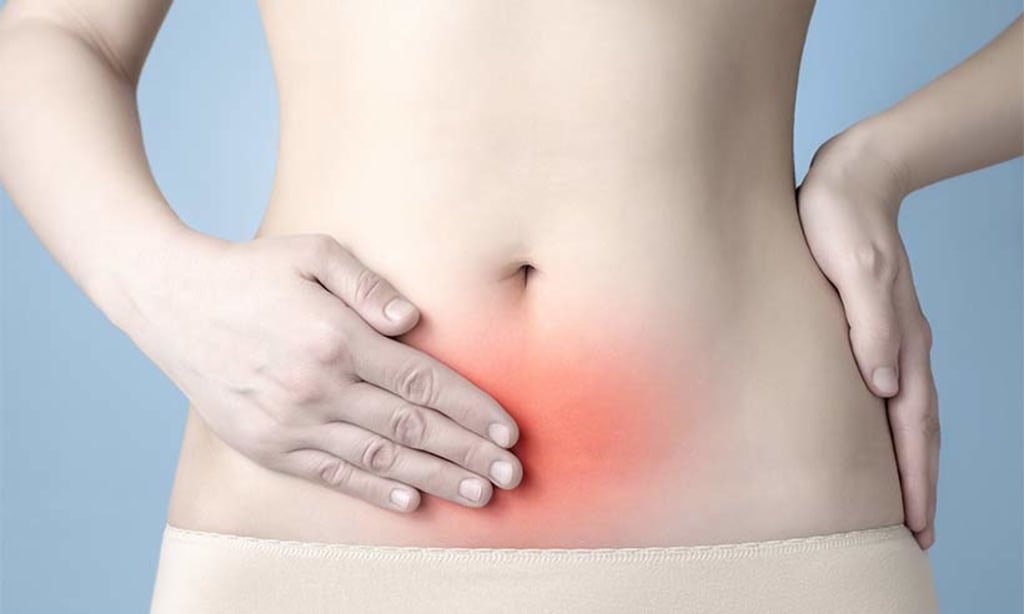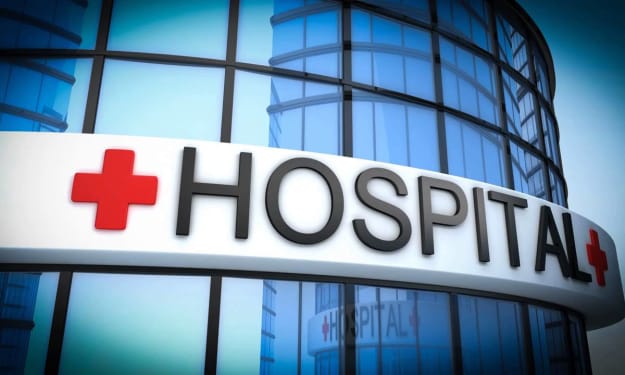Living with Endometriosis
Coming from Someone Who Is Currently Struggling with This Disease

Endometriosis is a disease that can affect women of all ages. Despite the fact that most people have never heard of it, one in ten women experiences endo. Many women go undiagnosed for years, only finding out that something is wrong when they can't have a baby. This article isn't meant to take the place of medical advice but to tell my own personal experience with endometriosis and how I have dealt with it.
What is endometriosis?
Endometriosis is when the lining of the uterus (womb) grows outside the uterus. In a normal reproductive system, endometrium (the lining) builds up each month inside the uterus in order to create a nice comfy space for a baby to grow. When there isn't a baby, then that lining sheds and is expelled out of your vagina in the form of a period. When you have endometriosis that lining doesn't just grow inside the uterus but elsewhere in the body. It most commonly grows on the bowels, bladder, ovaries, and fallopian tubes; but there have been cases where women have had it in their lungs, nose, and even their brain. Doctors don't know what causes this to happen. There are theories ranging from backward menstruation, which means they think that instead of the endometrium coming out of the vagina it flows backward into the body; to theories that are more genetic. They do know that if you have women in your family that have endometriosis, then you yourself are more likely to have it.
Symptoms and Diagnosis
Symptoms of endometriosis can vary wildly from woman to woman, depending on where the endo is located and how bad it is. There are some universal symptoms though. The main one is severe pain around your period, women with endometriosis tend to have very bad cramps, tightness, and pressure. They may also experience pain when ovulating and get cysts often. Pain during sex is also very common. Another symptom is irregular, heavy bleeding. It is quite common for women to have no regular cycle at all even when taking hormonal birth control. They may also bleed more than average. It can be hard to tell what is normal when it comes to how much you are bleeding but if you are having to change your pad or tampon frequently or having blood clots that are bigger than a few centimeters in diameter then you are probably bleeding too much. A somewhat hidden symptom is infertility. There is no way to tell you're infertile until you start trying for a baby and find that you can't get pregnant. This is often the symptom that gets women diagnosed. A symptom that many wouldn't connect to their reproductive system is constipation and/or diarrhea. You might find that this happens just before or after your period. It is important to make a note of when this happens so you can see if it is indeed related to your period or if it has some other cause.
Unfortunately, the only way to get formally diagnosed is through surgery. A doctor will perform a laparoscopy, putting a camera through a small incision near your belly button and physically look for patches of endometriosis. Because it is an invasive test, doctors are hesitant to perform it right away. They try to rule everything else out and give you hormonal birth control to see if that eases your symptoms, if neither of those options does anything, then they will consider doing the surgery.
Treatments
At this point in time, there isn't much in the way of treatment for endometriosis. The first option is hormonal birth control, this can help get your periods under control, reduce how much you bleed, and alleviate some of the pain. At the moment, there is only one medication that is used to specifically treat endometriosis which is called Zoladex (or Lupron if you're in the U.S). This medicine works by switching off the production of estrogen. Estrogen is what causes the endometrium to build up so the theory is that by stopping that production you will also stop the endometriosis. Unfortunately, it is not a long-term medication due to the fact that it decreases your bone density and leaves you at risk for osteoporosis.
Surgery is also used to treat endometriosis. The surgeon will go in and burn away any endometriosis that they see. The problem with this is that the more surgeries you have the more scar tissue will develop which can cause even more problems down the road.
The only real "cure" for endo is a complete hysterectomy (removing the uterus and ovaries). I put cure in quotation marks because often the damage has already been done by the time a hysterectomy has been done. Endometriosis causes scar tissue which, in itself, causes pain. There is no way to get rid of scar tissue so even if you manage to cure the endo, chances are there will be problems left over. Also, having a hysterectomy is a big decision, you would no longer be able to have children and you would immediately go through the menopause.
How to Ease Symptoms
There are a few ways to ease the symptoms of endometriosis. Keeping on top of your pain is the best way to stop the pain from becoming unbearable. Don't let your pain get worse and worse, take a pain reliever as soon as you start feeling uncomfortable. If you wait until you're in so much pain that you can't move then nothing will help. Using heat can help ease cramps and tightness. A hot water bottle or electric heating pad are great options because disposable heating pads are expensive and don't give off a lot of heat.
If you suffer from constipation as a result of endometriosis then it is much better to try and prevent yourself from becoming constipated than try to treat it once it happens. Drink plenty of water and stock up on some prunes. Eating a balanced diet with plenty of fruits and veggies will also benefit your digestive tract. If you know that you tend to get constipated around your period then taking a stool softener when you know you're going to get your period can help. Stool softeners bring water into the bowels so there's no danger of getting "lazy bowels" from taking them for a few days.
Keep a diary of your symptoms. Make a note when your period starts, when it stops, and how much you are bleeding. Also, write down when you experience pain and if you were doing anything around that time. You may discover that doing a certain activity such as going to the bathroom, makes your pain worse. This will both help you live your life around your disease, and help your doctor get a better idea of what you are experiencing.
Having a chronic disease takes its toll mentally and emotionally. Make sure that you have a good support system. Don't keep silent about your disease, if you tell people then they will most likely be supportive. They can help you pick up the slack when you are having a bad pain day. In a way, this is the most important thing that you can do to help yourself. It is so easy to fall into depression when you are dealing with pain all the time, having friends and family to rally around you will make you feel better about yourself.
My Experience
I first started having symptoms of endometriosis when I was 11 years old. I got my period when I was 11 and right off the bat I was bleeding very heavily and having pain. My mother (who also has endo) knew that something was wrong when I woke her up one night with my sheets covered in blood. When I was 13, I had my first cyst and was put on birth control. From that point, I started seeing gynecologists but I had a hard time finding one that took me seriously. I was told that I just had a low pain threshold, that I was making it up, and that I was a teenage drug-seeker. I was very lucky that my mother didn't believe them and she stuck up for me. At one point, I was diagnosed with tight vaginal muscles and sent on my way with some vaginal Valium! Being dismissed so many times was disheartening and there were many moments where I started to think that maybe it was all in my head or that I was just being a baby. Finally, when I was 18, I found a doctor that actually believed me. She agreed to do the surgery needed to diagnose me. When she said that I did have endo I was strangely relieved, I had confirmation that I wasn't making it up. Although I still struggle with the effects of endometriosis, having the diagnosis has made a huge difference. I no longer have to fight tooth and nail to prove that I am in pain.
Women shouldn't have to struggle with pain for so many years before being taken seriously. We need to be more open and vocal about our periods so that people know what is normal and what isn't. We also need to stand up for ourselves when there is a problem. Remember that a doctor may know more about the human body than you do, but no one knows your body better than you do.
About the Creator
Jessica Purvis
I am a 22 year old student therapist. I am passionate about mental health, women's rights, and women's health. I love to write, both fiction and non-fiction. I also enjoy riding horses and rock climbing.






Comments
There are no comments for this story
Be the first to respond and start the conversation.